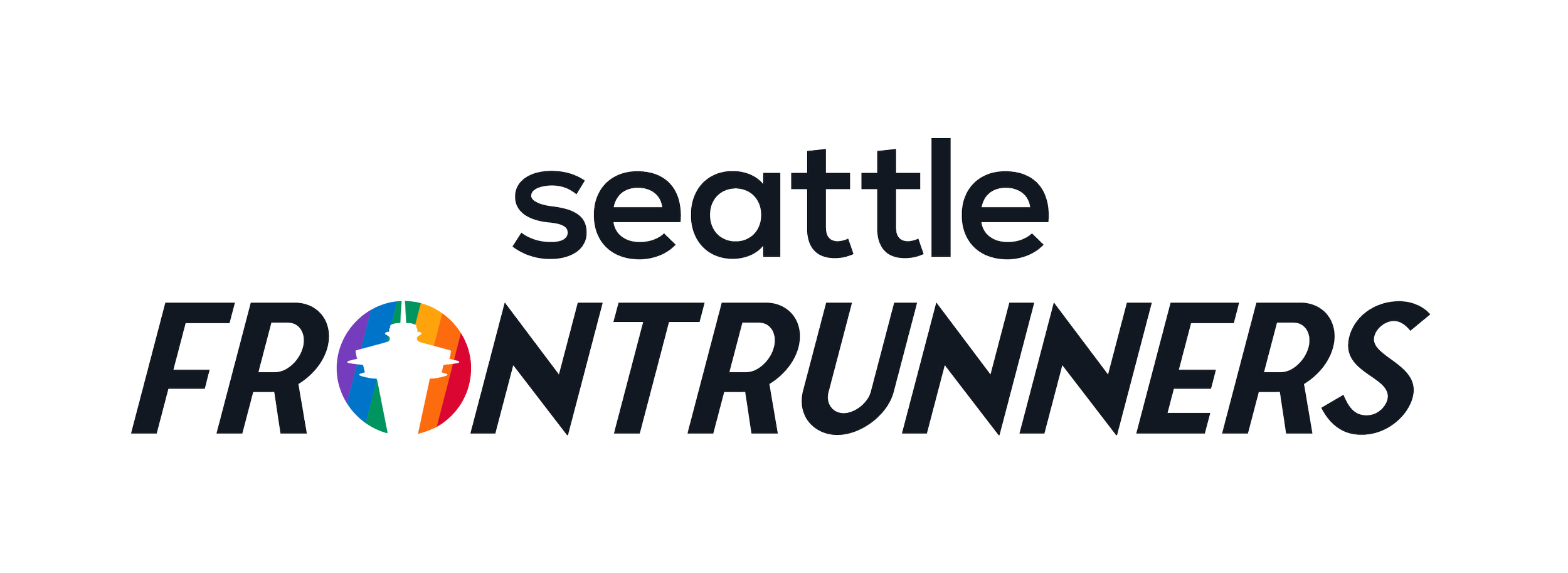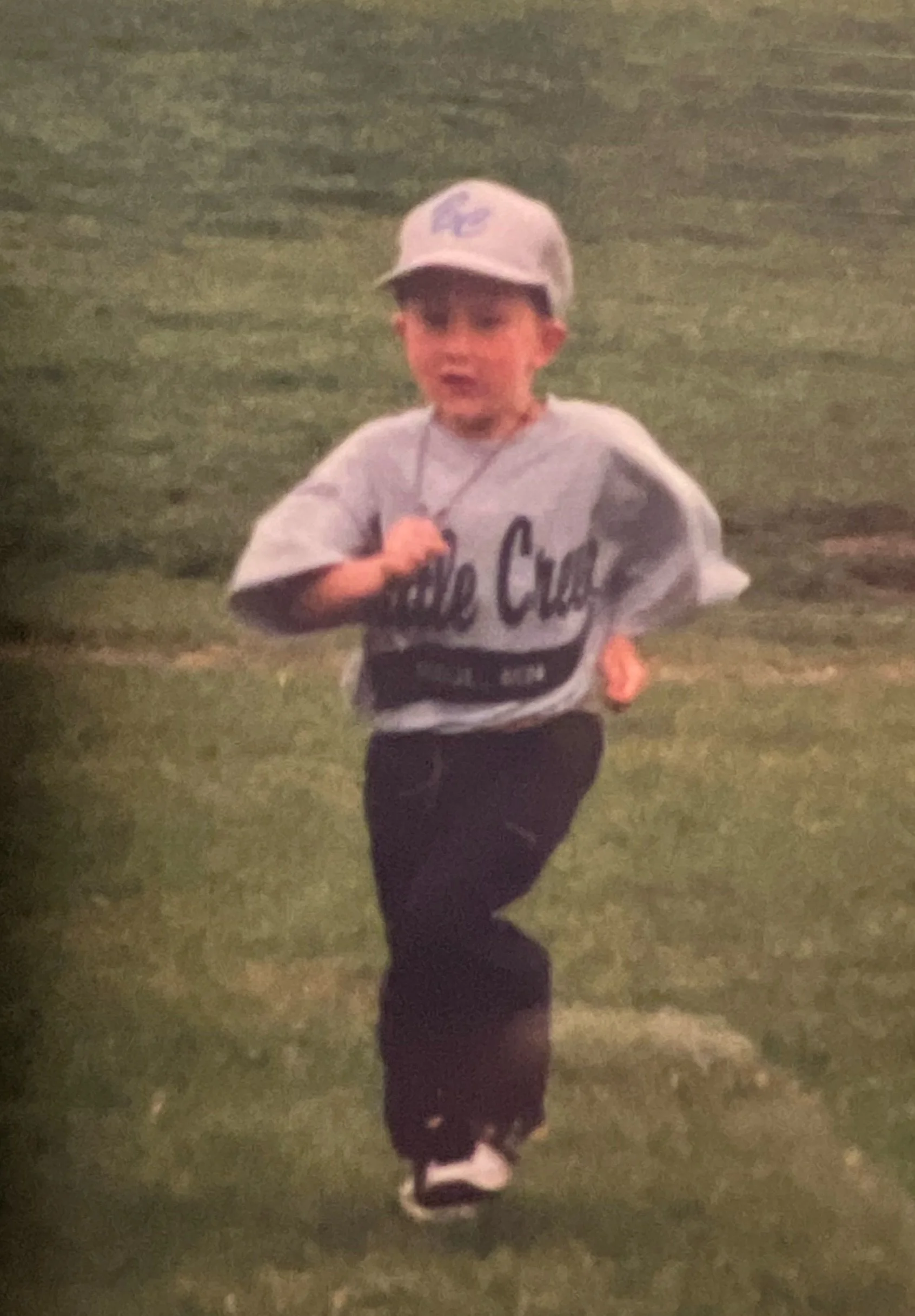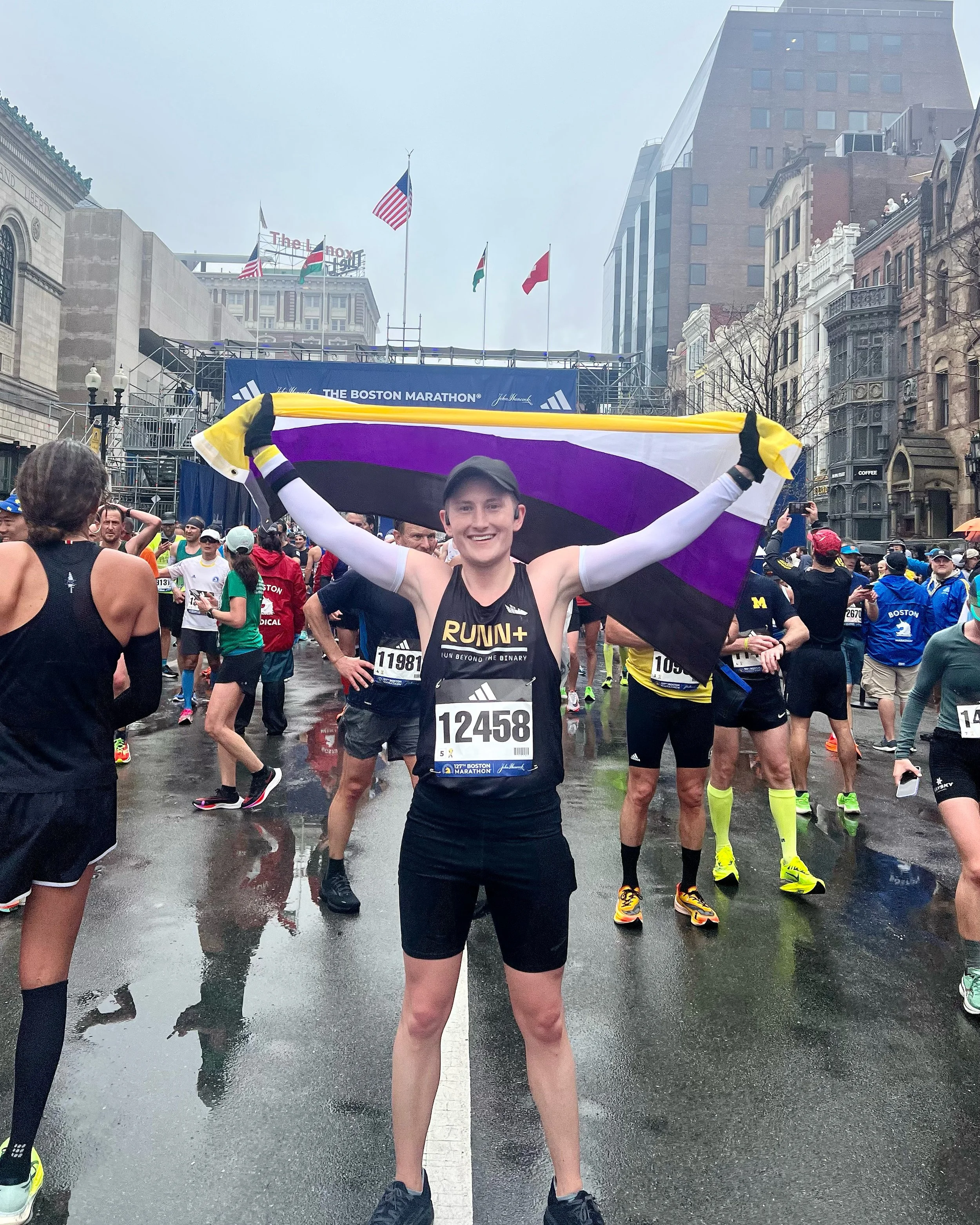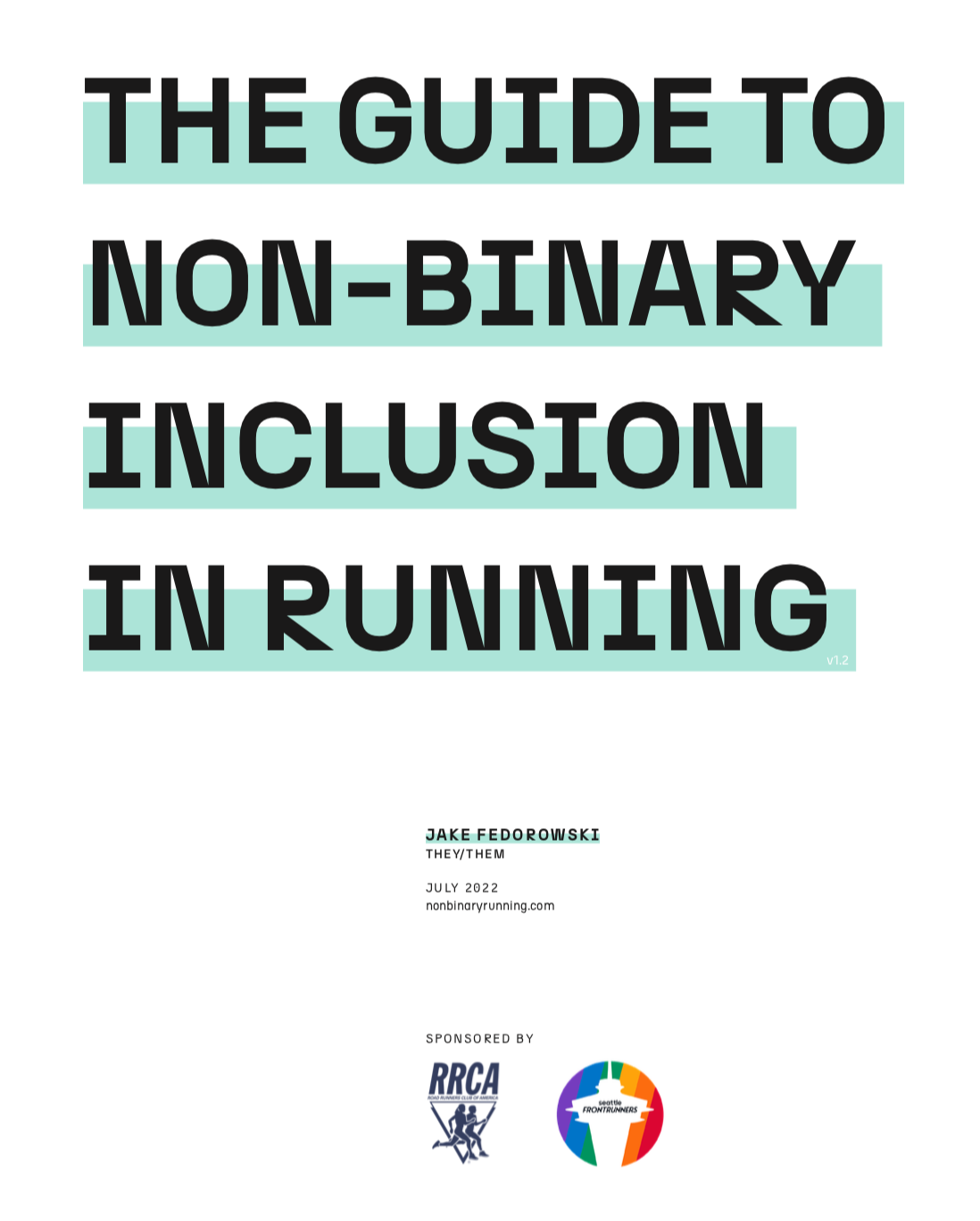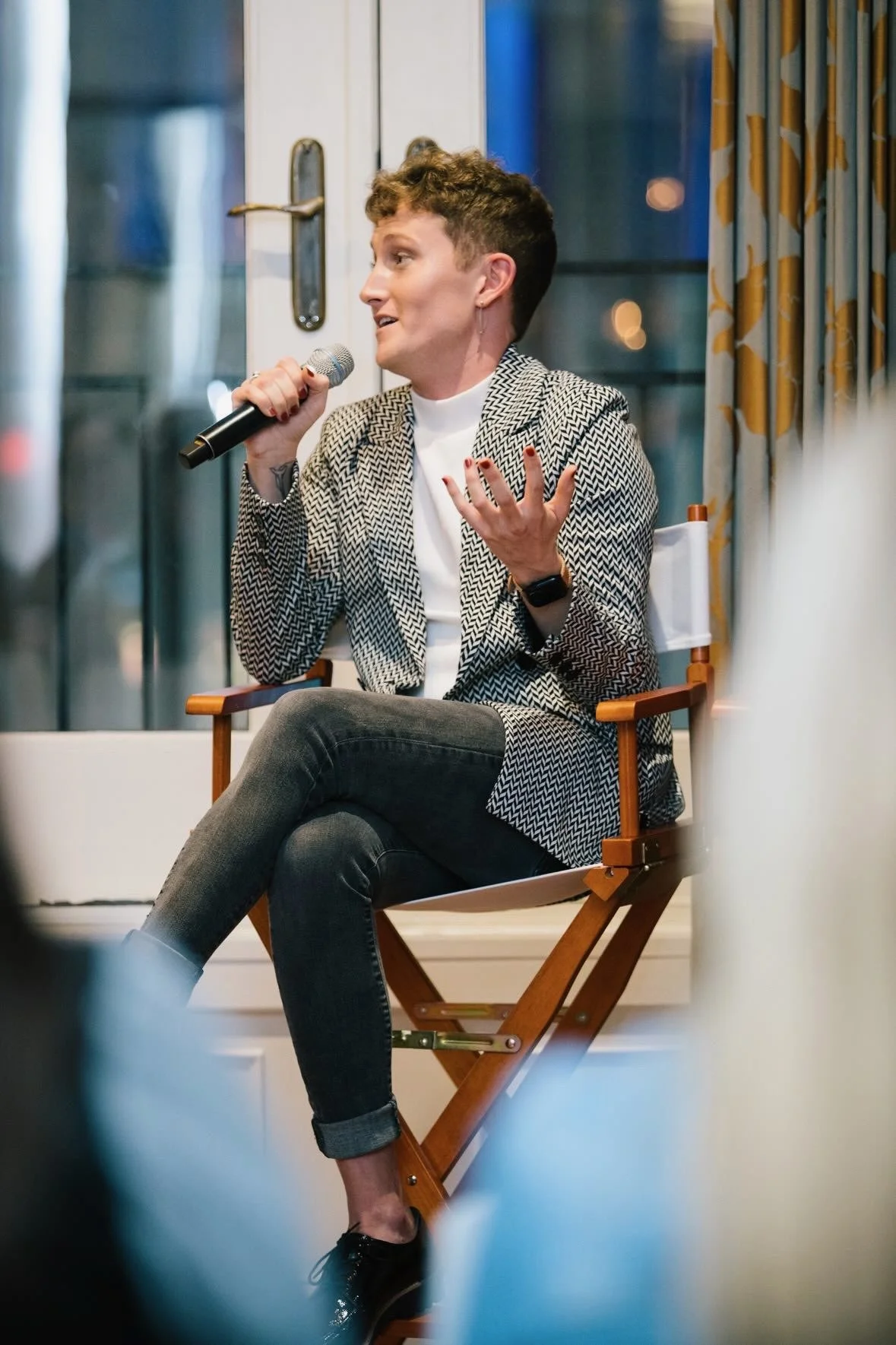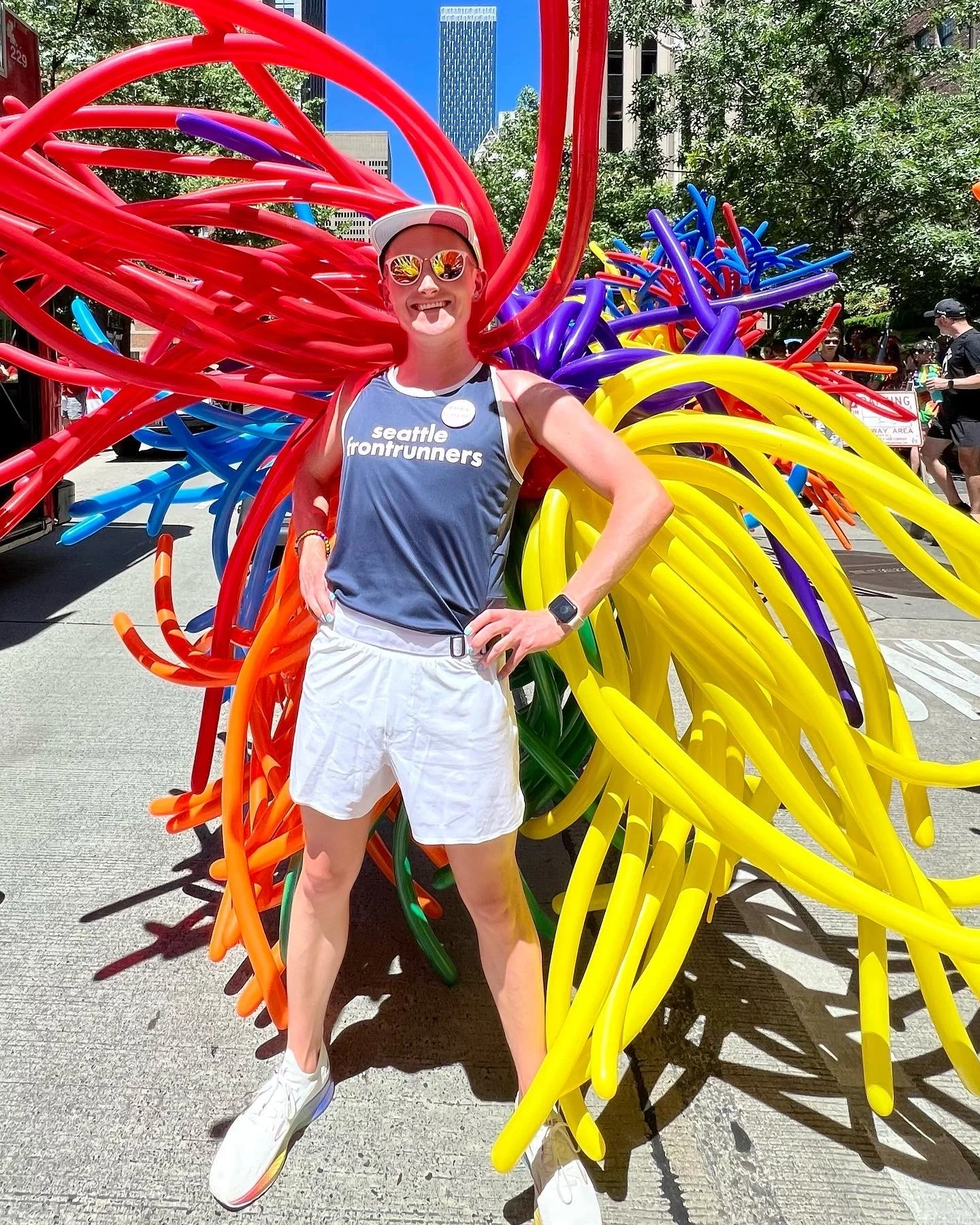What Does Running Mean To You, by Jake Fedorowski
I was recently asked what running meant to me and found myself at a loss for words. As an advocate for queer inclusion in the running industry, I was surprised that I hadn’t faced this question sooner. Why DO I run? Why DO I advocate for space for the queer community to run?
Running, to me, is a connection to my body, a community, and the land.
I was introduced to sport at a young age. I tried baseball, hockey, and soccer, but none of them stuck. At the time, I would’ve told you that sports just weren’t my thing and that I’d much rather explore the world of theatre, music, and art. Then, in college, as I discovered and came into my true gender identity and sexuality, I sought out ways to reconnect my body to this identity I was finally able to define. I biked, rollerbladed, and even tried running, which was something I never imagined myself enjoying.
I was wrong. Running gave me a newfound feeling of weightlessness, and better yet, didn’t require me to fit into the culture of a team or sport. Maybe the reason why sports and I never clicked at a young age was due to the hypermasculine, hypercompetitive culture telling me that I didn’t belong.
I moved to Seattle in January of 2021 and, three days after arriving, I attended my first run with Seattle Frontrunners. It was cold and dark, and everyone was bundled up and wearing masks. As we circled up, I suddenly became very anxious about what I had gotten myself into. By the end of the evening however, running had become so much more than an individual activity. SFR showed me that running could be done alongside a supportive community, one that sees you and encourages you to accomplish goals you never dreamed were possible. When I first discovered running in college, a 5K seemed strenuous. But 8 months after joining SFR, I went on to run my first marathon. Not only did I complete the 26.2 miles without stopping, but my finishing time would later qualify me to run in the inaugural non-binary division at the Boston Marathon in April of 2023.
I use “later” because non-binary divisions were still largely unheard of at the time. As I looked beyond the positive, affirming space SFR had cultivated, I perceived a larger running industry that still had so much work to do to not only include trans and non-binary participants at the point of registration, but to also change the culture so that all queer participants felt like they belonged. That is where my advocacy began.
I saw a problem: the only options when registering to participate in many races were men’s and women’s divisions. What were those who existed between, outside, or even beyond the gender binary expected to do – pay to be misgendered? Or not participate at all? I started asking race organizers these questions, and to my surprise, received lots of interest in creating more inclusive spaces for non-binary athletes. They just didn’t know how. So, I took it upon myself to get comfortable with being uncomfortable, have difficult conversations with industry leaders, and create a resource to assist those willing to engage. Not only has the Guide to Non-Binary Inclusion in Running become the industry standard for implementing non-binary divisions, it served as the catalyst for discovering a larger purpose.
After unearthing what running meant to me, I found myself grappling with what jeopardizes that. My ability to access that connection to my body, a community, and the land, especially as a queer, non-binary person, is threatened by unsafe, unwelcoming, and exclusive spaces.
What can I do to ensure spaces are safe and affirming for the queer community to thrive? It started with the guide. I then began working with races around the country, including the Bank of America Chicago Marathon, as they implemented these divisions. I’ve given staff and volunteer trainings, co-authored policies, and consulted on best practices for events, large and small. Through that work, I noticed a craving for community amongst non-binary athletes, especially those who lived in more rural areas of the country. That was the impetus for founding Run Beyond (RUNN+), an online community for non-binary athletes to connect. We also use our weekly series, Existing Beyond, to introduce non-binary athletes and bring more visibility to the non-binary experience in running. Not only does this show industry leaders the people we’re advocating for, but it also inspires the next generation of non-binary athletes and shows that they belong.
At the end of 2022, a group of queer advocates and I noticed a disconnect. RunSignup and others were reporting that Gen Z participation in industry events was drastically decreasing. Coincidentally, Gallup polls were showing that 20% of GenZ was queer, and since the onset of the COVID-19 pandemic, we seemed to be amid a queer running boom with new queer running communities popping up around the country. There are now over 65 queer running clubs, many of which continue to break individual and national records, such as Front Runners New York, who saw their membership total exceed 1,100 in 2022. The 2019 Front Runners New York LGBT Pride Run set a Guinness World Record with over 10,000 finishers and in 2022, the Atlanta Pride Run & Walk 5K raised $93,000 for local charities.
The queer running community is very much alive but hasn’t been incorporated into the larger running industry. That is why we launched the Queer Running Society last month. This organization’s mission is to elevate the queer experience and push for lasting change in the running industry.
I found my purpose, my why, and that is to ensure that the next queer person can show up as their authentic self and discover that connection to their body, a community, and the land. I wouldn’t have survived the roller coaster that has been these last two years if Seattle Frontrunners had not shown me the power of running with community. Words cannot describe my gratitude for those who have supported me, given me grace, provided guidance, and pushed me to keep moving forward even in the most challenging moments.
Our country is going through a very dark time right now. A time when a record amount of bills directly aimed at harming the queer community have been introduced in state legislatures. A time when trans and non-binary individuals are told they don’t exist. A time when queer people of color, especially black trans women, are at a much greater risk of harassment and harm. A time when governing bodies of international sports associations are setting dangerous precedents by enacting discriminatory policies under the guise of protection instead of inclusion. But just as Martin Luther King Jr. said, “Darkness cannot drive out darkness; only light can do that. Hate cannot drive out hate; only love can do that.” I remain committed to fighting for the future of this sport, and the future of our community.
As we finish out the month of June, remember to run PROUD, and to the non-binary folks, remember to run BEYOND.
Jake Fedorowski
They/Them
